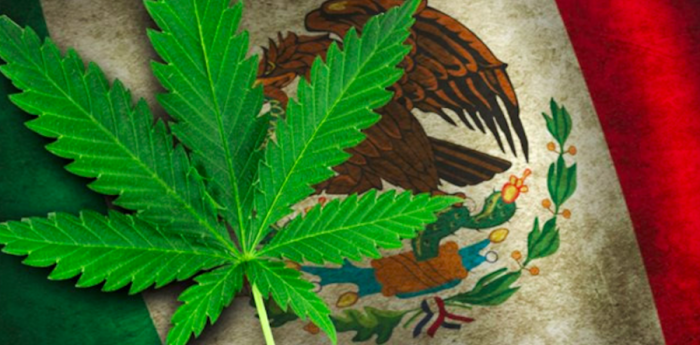Mexican Congress aims to bolster economic recovery with cannabis legalization
Cannabis to the rescue! This is what it seems like lately, with medical cannabis patients in many legal states across the United States – and their collective economies – benefiting from the industry being dubbed “essential business”. As Mexico anticipates a financially-impacted aftermath from COVID-19, Senator Julio Ramón Menchaca Salaza is piling all of his eggs into a green basket… filled with language on cannabis legalization in Mexico.
The motive behind Salaza’s attempts to legalize cannabis in Mexico have been amplified by the coronavirus pandemic and the prospective economic dilapidation that may linger in its shadows. Salaza – who is ruling the Morena party – feels confident that congressmen may shift their perception on cannabis reform; he stressed the fact that members of Congress have the power to advance changes on a federal level.
“We have this opportunity and we are going to take advantage of it,” the Mexican Senator expressed to reporters. According to the Morena party frontman, further debate on the topic of cannabis legalization and its prospective positive impact on the Mexican economy following COVID-19 – pertaining to tax collection and increased employment opportunities – must be discussed for a true decision can be made.
Primarily, he wants to bring in much-needed tax revenue from legal cannabis sales and help the ocean-engulfed North American country to recover from a stunted year of economic development. Salazar also mentioned the economic windfall that farmers could experience if they are able to cultivate both cannabis and industrial hemp plants.
Proposed bill to legalize adult-use cannabis in Mexico would allow home-growing
As per the details of the proposed bill to legalize recreational cannabis in Mexico, business licenses and market regulation would be dealt with by the Mexican Institute of Regulation and Control of Cannabis. If lawmakers vote in favor of the legislation, adults aged 18 and over would be legally allowed to possess the plant for personal use. Although a 28-gram limit would be imposed on personal possession, possession of up to 200 grams would be decriminalized.
Not only this, but home-growing laws would also be enacted under the terms of Mexico’s adult-use cannabis bill; giving consumers the option to visit dispensaries or, alternatively, consume their own harvest. Home-growers shouldn’t get too carried away if Mexico’s proposed bill to legalize adult-use cannabis is approved, however. Why? Because there is a limit on the number of plants that can be grown within a household — 20 registered plants can be cultivated, so long as the annual yield does not surpass 480 grams.
Adult-use consumers aside, medical cannabis patients in Mexico would also be able to apply for home-growing opportunities; cultivation allowances are expected to exceed 20 plants for registered patients.
Proposed bill to legalize adult-use cannabis in Mexico would impose 12 percent sales tax
If adult-use cannabis sales in Mexico are legalized, a 12 percent tax would be imposed on all sales. A chunk of revenue earned through legal cannabis in Mexico would also be designated towards substance misuse treatment programs; the funding would ensure that individuals who struggle with substance abuse can receive the help they need.
Unless a public space is designated as a “smoke-free zone”, the approval of Mexico’s adult-use cannabis legalization bill would mean that consumers can spark up a spliff anywhere they please. Any regulations imposed on the sale of products containing the psychoactive compound THC (tetrahydrocannabinol) compound would be exempt from products containing either/both hemp and the non-psychotropic cannabinoid CBD (cannabidiol).
Mexican senators are now urging lawmakers to conduct as many meetings as is required to ensure the legalization bill is approved. There’s also a chance that Mexico’s adult-use cannabis bill may be promoted through a permanent panel of committee members; all of whom reserve the right to process negotiations. However, a final decision will fall upon the full Congress.









